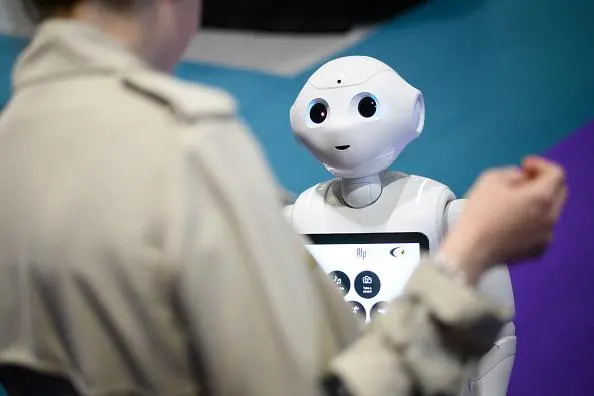PHOTO
Muscat – A new research has explored the impact of using robots with different personalities in student engagement and learning in educational institutions.
Dr Falah Younis Hamode, Assistant Professor and Research Coordinator at the Faculty of Computing and Information Technology at Sohar University, led a groundbreaking research project to conduct ‘Sentiment and Emotional Analysis to Capture Misinformation in Natural Language Expressions Using Furhat Social Robot’.
The project, funded by the Block Funding Programme of the Ministry of Higher Education, Research and Innovation, marks a significant advancement in the field of educational technology.
The study utilised a humanoid robot named Furhat, designed to communicate with humans in a friendly and expressive manner, to investigate its impact on students in schools and universities.
Dr Hamode’s research involved interactions with 300 students from Sohar University using Furhat – the robot, which embodied four diverse characters – Omar, Fernando, Gyeong, and Yumi – each varying in age, skin colour, voice, and pronunciations.
The research findings revealed that the robot’s varying personalities significantly influenced students’ perceptions and engagement levels. Traits such as age, gender, and voice played a crucial role in shaping students’ receptiveness to the teaching content.
The study highlighted the diverse responses of students to each of Furhat’s personas, indicating specific preferences for different characteristics and communication styles.
Statistical analysis showed significant differences in students’ attitudes, comfort levels, and trust towards the various robot personalities.
The study indicated that adaptability in teaching methods, based on the robot’s user interactions, was vital in shaping students’ acceptance of the robotic teaching system.
Dr Hamode emphasised the importance of tailoring the robot’s characteristics to the preferences of the student audience to maximise engagement and learning outcomes. He recommended continuing the use of diverse characters to cater to various learning styles and exploring a wider range of emotional expressions in the robot’s interactions for a more immersive learning experience.
Sohar University is pioneering in the Middle East as the first academic institution to utilise the Furhat robot for research. This adoption of advanced technology demonstrates the university’s dedication to innovative research and acknowledges the significant role humanoid robots like Furhat can play in enhancing a range of academic fields.
The research highlighted the intricate influence of robot personalities on students’ perceptions, extending beyond mere content delivery to affect the entire educational experience. Such insights are crucial in the ongoing dialogue about incorporating robotics into educational contexts, underscoring the need for tailored and flexible interactions with robots to achieve impactful learning results.
The research, conducted by Dr Hamode and co-principal investigator Dr Abdallah M Abualkishik, was published in the international journal Computers. It contributes significantly to the discourse on integrating robotics in education, highlighting the need for personalised and adaptive interactions in robotic learning systems.
© Apex Press and Publishing Provided by SyndiGate Media Inc. (Syndigate.info).





















